- Home
- Joel Goldman
Final Judgment Page 22
Final Judgment Read online
Page 22
FIFTY-FIVE
Vince Bongiovanni made enough money suing corporations to build a building with his name on it, complete with corporate logo and slogan—Doing the People’s Business. The logo was a golden eagle in flight holding silver scales of justice in its beak and was positioned above the entrance at an angle to reflect the sun off the eagle’s shiny wings and bounce it again off the silvery scales. It was a not so subliminal message to potential clients to stop by and pick up their money.
The building was located at the intersection of Rockhill Road and Brush Creek Boulevard, east of the Plaza. The Nelson-Atkins Museum of Art loomed over its shoulder to the north. The Kaufman Foundation, devoted to education and entrepreneurship, sat across from it. The Stowers Institute, dedicated to curing cancer, rose on the opposite corner. The University of Missouri at Kansas City occupied the fourth corner of the intersection. Bongiovanni said that his building was dedicated to justice and was, therefore, a perfect complement to his neighbors.
His firm was on the third floor, the bottom two floors rented to other lawyers in pursuit of justice as their clients defined it. His private office would have accommodated three or four of Mason’s, the artwork alone worth more than Mason’s annual gross.
Mason tried not to be jealous, remembering his Aunt Claire’s admonition not to be a prisoner of his possessions. Still, he conceded a twinge of envy, noting how well things had gone for Bongiovanni and wondering if he could have done the same had he stayed with the law firm he started with when he graduated from law school, a small group that had also grown rich representing plaintiffs. He’d left that firm in a dispute over ethics, though with the passage of years it was hard to remember the details or summon the passion of that moment.
Ancient history, he told himself, though Kelly had been right when she said there was no such thing as ancient history, if the phrase was supposed to mean that the past was dead and buried. Life was much more of a loop, colliding with the past, than it was a straight line running away from it.
Bongiovanni showed him into his private office, motioning him to a chair, taking the one opposite Mason, who declined his offer of an espresso. Wynton Marsalis’s Magic album was playing on the sound system, speakers and components invisible, riffs, rhythms, and melodies layered like a canopy above them. A CD case lay on the table. Mason couldn’t tell if it was for the music or something else, remembering the CD that had been stolen from Lari Prillman’s safe. Bongiovanni was using it as a coaster for his coffee cup.
“Might as well get down to it,” Bongiovanni said. “I need help with Charles Rockley.”
Rockley’s history as a sex offender would blow the lid off of Carol Hill’s case, especially if Galaxy knew about it, ending any doubts about Carol’s credibility and hoisting Galaxy onto the liability hook. Bongiovanni would smack Galaxy in its corporate face with that evidence. It would also put more pressure on Vanessa Carter to reopen the hearing before issuing her ruling. That realization was like twin screws on a vise around Mason’s neck. But it was all he had to give Bongiovanni. If he got a tape of his conversation with Ed Fiori in return, it might be worth the risk.
Mason nodded. “Maybe you should reconsider settling the case.”
“I told you before. We aren’t interested in anything but Judge Carter’s decision.”
Bongiovanni had described Carol’s case as a toss-up, yet neither of them would consider settling it. Mason’s information about Rockley would only harden their determination to make Galaxy suffer.
Bongiovanni picked up his coffee cup, giving Mason a good look at the CD case. Mason had boxed himself in. He had to give Bongiovanni something, and the truth about Rockley was all he had.
Bongiovanni tapped a corner of the CD case on the table in a failed effort to match the beat of the music. Mason winced, each tap like a needle piercing his skin. He bit his tongue to keep from licking his lips, unable to take his eyes off the CD, desperate to know if he was on it, his past about to collide with his present.
“You all right?” Bongiovanni asked. “You look like you’ve got the DTs.”
Mason forced a smile. “Late night, early morning. I’d like to get a look at what you found in Ed Fiori’s office.”
“You keep telling me that and I keep wondering why. It couldn’t involve Carol’s case since Ed has been dead for three years and she’s only worked at Galaxy for a little over a year. So it has to be something personal to you. I did Ed’s legal work or farmed it out so I know he never retained you. Which means your business with him wasn’t of the sort you normally did. How am I doing so far?”
“I’m not a jury. You don’t have to convince me.”
Bongiovanni smiled. “Uncle Ed was an interesting guy. Some days he was good and other days he was bad. He liked to play around the edges. That must be where the two of you did some business—around the edges, I mean. Whatever it was, you figured it died with Ed, but you couldn’t be sure and you’ve spent all this time waiting for the other shoe to drop. This case comes along and gives you the chance to trade some information for peace of mind. That about it?”
“What difference does it make?”
“Makes all the difference. Peace of mind doesn’t come cheap. I hope you’ve got something worth it.”
Kelly Holt had made the connection between him and Ed Fiori, though she hadn’t filled in all the gaps. It wouldn’t be long before she found her way to Judge Carter. Bongiovanni had a completely different piece of the story. If he sensed it would help him in his private war against Galaxy, he’d keep pushing until he too found his way to Judge Carter and the blackmail scheme.
He had to beat both of them to the finish. He felt like he was being chased by a pack of dogs and was throwing fresh meat over his shoulder to spur them on. He took a deep breath and tossed Bongiovanni another morsel.
“Charles Rockley’s real name was Tommy Corcoran. He had a record for sexual assault. If you can prove Galaxy knew that, you could end up with the casino and the rest of the hotel.”
Bongiovanni whistled. “Brother, you do deliver the groceries. How do I prove that?”
“Subpoena his records from the FBI.”
“I’ll need a witness to testify.”
“Forget about the witness. Go to Lari Prillman. She’ll convince Galaxy to settle. You can call a press conference, declare victory, and embarrass the hell out of them.”
“Look around you, man! You think I give a shit about splitting another fee fifty-fifty with Uncle Sam? When Ed was killed, he was in debt up to his eyeballs. Those bastards at Galaxy bought the loans on the casino and the hotel before Ed was in the ground. Then they foreclosed. I tried to pay off the loans, but they wanted the properties, not the money. My aunt was left with nothing. I sued them and lost. I told my aunt I would take care of her, but she was ashamed to take money from me. She stroked out a few months later and will spend the rest of her life in a nursing home drooling into a cup tied under her chin. So I’m not going to send them a fucking settlement offer. I’m going to send them a subpoena.”
Mason began to reach for the CD but pulled back when Bongiovanni picked it up and walked to a cabinet next to the bar. He pressed the cabinet door and it popped open revealing his sound system. He removed the Wynton Marsalis disk and inserted the unmarked one. It was Eric Clapton singing a blues number that matched Mason’s mood. Bongiovanni turned to him, grinning wide.
“Ed’s office was wired for sound. He had a button under his desk he pushed when he wanted to activate it,” he told Mason. “I told him to get rid of it, reminded him what happened to Nixon. But it made him feel like one of the big boys. Wouldn’t give it up, but I guess he finally took my advice.”
“How do you know?”
“Like I told you before, I got to Ed’s office as soon as I could after he was killed. I went through everything.”
“Were you alone?”
“Just me and Ed’s secretary. She was the one who really knew where everything was and she helped me col
lect all his stuff, including the tapes. I took the tapes home and listened to them. I sue a lot of powerful companies and people. Some of them take it personally. A few of them threaten me. I transferred the tapes to CDs just in case I might need them one day to level the playing field. I went back through them yesterday and you aren’t on any of them. The last tape was made a week before Ed died. According to the newspaper stories, you would have been there during that last week. Whatever went down between the two of you stayed between the two of you.”
Mason knew that was supposed to make him feel better, but it didn’t. “What happened to Fiori’s secretary?”
“She landed on her feet. Galaxy hired her and she ended up as their HR director. Her name is Lila Collins. The world is round, huh?”
FIFTY-SIX
The world may be round, Mason thought as he drove back to his office, but so were bullets and he felt like he’d just taken a slug between the eyes. There was absolutely no reason to think that Ed Fiori had lost interest in his surreptitious taping system at the same time Mason had shown up asking for an off-the-books favor.
Lila Collins was the link between Ed Fiori and Al Webb; between Mason strong-arming Vanessa Carter to release Blues on bail and the blackmail net that had dropped on both of them.
Timing was everything. Al Webb had given a CD to Lari Prillman to hide in her safe at the same time she was defending him and Rockley in Carol Hill’s lawsuit. Turning the corner from Forty-seventh Street onto Broadway, Mason realized that timing was everything unless the timing didn’t work. Vanessa Carter had been blackmailed after the arbitration had ended but before someone had broken into Lari Prillman’s safe and stolen the CD.
Lari had told him that Al Webb had given her the CD for safekeeping at the outset of the hearing and that she hadn’t taken it out of her safe since then. If she was the only one with the combination, how did the blackmailer get it out of the safe to use it in the phone call with Vanessa Carter, and why would the blackmailer have put it back in the safe?
The most logical answers to those questions were that Lari Prillman had lied to him and that she was involved in the blackmail scheme. Mason wondered whether she hated the prospect of losing the case enough to blackmail the judge. Vanessa Carter had told him that the blackmailer was a man. Lari could have used a device to change her voice. Or, maybe the blackmailer was working for her.
He reconsidered the burglary, remembering how cavalier Lari had been when they arrived at her office and found the door unlocked. She hadn’t hesitated to walk in and would have continued down the hall into the arms of the thief if he hadn’t stopped her. Perhaps she knew there was nothing to be afraid of even when the shooting started, though her post-traumatic stress had seemed genuine.
The thief knew about the CD and that it was kept in the safe. The thief was able to pick the lock on the office door, crack the safe, and shoot in the dark well enough to scare but not kill him and Lari. He made a mental list of likely burglars. There weren’t many who fit that job description.
Al Webb knew about the CD but didn’t strike Mason as having the necessary skill set to pull off the job, although he didn’t have to be a second-story man. Webb had sat next to Lari at the Republican Party dinner the night of the break-in. He’d left early. Lari could have given him the key to her office and the combination to her safe. If she had, she wouldn’t have taken Mason to her office until she was certain Webb was gone. If she’d simply screwed up their timing, Webb could have come up with a more graceful exit strategy than attempted murder.
Vince Bongiovanni knew about Fiori’s tapes and may have known that Lila Collins had kept some of them for her own use, copying them onto CDs as he had. Assuming that Bongiovanni was willing and able to steal the CD, he would have blackmailed the judge to rule for his client, not against her.
Dennis Brewer was the only person Mason could think of who could have pulled off the robbery, especially after Mason and Lari interrupted him. Maybe there was more on the CD than the conversation between Fiori and Mason. Maybe Brewer was being blackmailed as well. Otherwise, Brewer would have just gotten a search warrant. Mason added another item to his to-do list: Check out a connection between Brewer and Fiori.
While he was at it, he’d try to answer a few other questions that kept rolling around inside his head. The FBI had intercepted an e-mail with the picture of Blues outside Rockley’s apartment attached to it. Who had sent the e-mail and who had been the intended recipient? Why did Johnny Keegan have Mason’s name and phone number on him when he was killed? Why did Rockley’s killer choose Fish’s car? What was so important about the outcome of Carol Hill’s case that was worth the risk of blackmailing Judge Carter?
Mason had sought answers to these questions from Detectives Griswold and Cates, Samantha Greer, Kelly Holt, Carol Hill, Mark Hill, Vince Bongiovanni, Al Webb, and Lari Prillman. He’d been stonewalled, lied to, or duped with half-truths and artful omissions. All of which meant one thing. He had yet to talk to the right person, someone he could dupe with half-truths and artful omissions. Lila Collins was his last chance.
FIFTY-SEVEN
Mason stopped for a moment as he reached the top of the back stairs to the second floor above Blues on Broadway. There were three offices along the hallway. Blues used the one to Mason’s right. The door was open, the office empty. The lights were on, Coltrane humming in the background.
Mickey Shanahan had lived in the office on the other side of the hall until Abby had lured him to Washington, D.C. He had originally rented the space for his own public relations firm, which had proved to be more fantasy than fact. Blues let him work off the rent by tending bar until Mason put him to work. The door to that office was propped open by a suitcase. Mickey was back but nowhere in sight.
Mason’s office was at the end of the hall, the door closed. The mail slot in the center of the door, usually stuffed by this time of day, was empty. Mickey was probably sitting behind Mason’s desk, feet up, balancing the day’s take-in fees against the bills marked Past Due. Mason picked up his stride, pushed open the door to his office, and stopped, rooted to the spot.
Mickey was seated behind Mason’s desk, though his feet were firmly on the floor, the unopened mail piled in front of him. Blues stood behind him, watching the traffic on Broadway. Both men looked up, though they offered neither a greeting nor an outstretched hand. Their faces were silent and long, their eyes now aimed at the woman sitting in the chair opposite Mickey, her back to Mason.
He recognized Vanessa Carter’s erect bearing even before she rose and turned around. She removed the dark glasses she was wearing, revealing a purpled right eye swollen half shut.
“We are running out of time,” she said.
“Who did this?” Mason asked, taking two steps toward her.
“I don’t know. He was waiting for me inside my garage when I came home last night. He’d unscrewed the lightbulbs. It was dark. I didn’t see anything. He grabbed me, hit me, and told me.”
“Told you what?” Mason asked.
“That I was running out of time.”
Wounds inflicted by guns, knives, or bare hands eventually healed, scars the last remnants. The wound that often didn’t heal was to the psyche, to that inner sanctum where people took refuge from the vagaries of a harsh and uncertain world; fear of another attack became a daily rite marked by a tremor or a tic. Vanessa Carter was no different. The tic had wormed its way into her cheek, her facial muscles twitching like she’d been short-circuited.
“Did you call the police?”
She clenched her hands together, pressing them against her middle, biting the words. “We both know I can’t do that. You have to stop this.”
Mason looked at Blues and Mickey, searching them for answers, finding none. He took a breath. “I’m working on it.”
It wasn’t a lie, but it wasn’t the truth either because the statement implied that he was making progress or that he had a plan; that a solution was in sight. None of that was true. In
stead, the walls were coming down around him—and her—and he had no better idea of what to do about it than to sacrifice himself, an option that had as much appeal as throwing a virgin into a volcano to keep it from erupting.
“I can keep an eye out,” Blues volunteered.
Judge Carter looked back at him, a tremor creeping into her voice. “I would appreciate that. I’ll be at home until this is over.”
It was another concession to her circumstance that she made reluctantly, her pride in being self-sufficient another casualty. She walked slowly down the hall, disappearing one step at a time.
Mason wiped his dry erase board clean, laying out the facts as much for him and Blues as for Mickey. Taking it from the beginning forced him to organize the story chronologically, highlighting the gaps in what they knew and underscoring the questions that had to be answered.
The first case Mickey had worked on for Mason had been the one in which Blues had been charged with murder. Mason and Blues hadn’t told him about Judge Carter, seeing no reason to involve him. Hearing that part of the story for the first time, his eyes widened and he shifted uneasily in Mason’s desk chair.
“You’re in deep shit,” Mickey said when Mason had finished.
“Is that what the politicians say in D.C.?” Mason asked.
“No. They say this is no time for politics, which means every man for himself. Do we have a plan?”
“Not exactly. Everything begins and ends with the casino. Carol Hill, Charles Rockley, Johnny Keegan, Al Webb, Lila Collins—they all worked at Galaxy. Lila is the only one who worked for both Ed Fiori and Al Webb. She’s the common denominator and the best bet to have found Fiori’s tapes. There’s no connection between Avery Fish and Charles Rockley, but there’s a big connection between Al Webb and Avery Fish.”

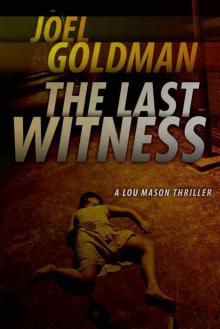 The last witness lm-2
The last witness lm-2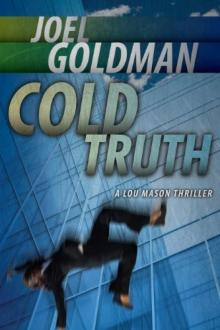 Cold Truth
Cold Truth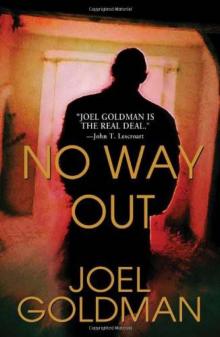 No Way Out (2010)
No Way Out (2010)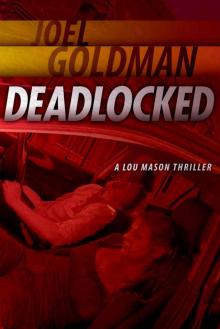 Deadlocked (Lou Mason Thrillers)
Deadlocked (Lou Mason Thrillers)![[Lou Mason 01.0] Motion to Kill Read online](http://i1.bookreadfree.com/i1/03/24/lou_mason_01_0_motion_to_kill_preview.jpg) [Lou Mason 01.0] Motion to Kill
[Lou Mason 01.0] Motion to Kill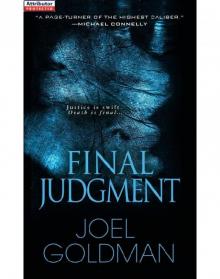 Final Judgment
Final Judgment Stone Cold
Stone Cold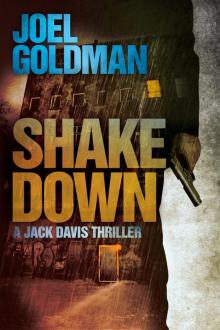 Shakedown
Shakedown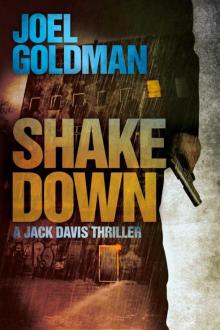 Shakedown jd-1
Shakedown jd-1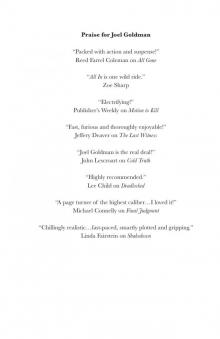 All Gone
All Gone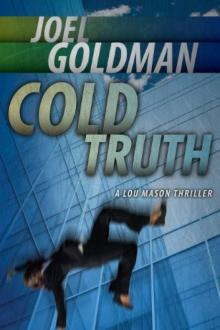 Cold truth lm-3
Cold truth lm-3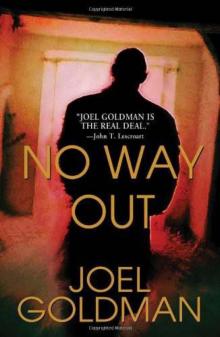 No way out jd-2
No way out jd-2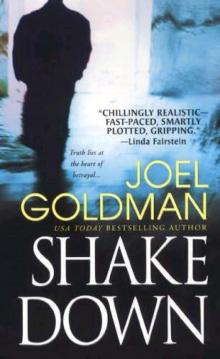 Jack Davis Mystery - 01 - Shakedown
Jack Davis Mystery - 01 - Shakedown Stone Cold as-1
Stone Cold as-1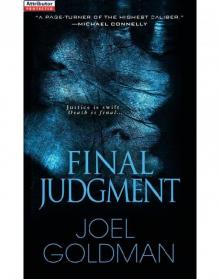 Final judgment lm-5
Final judgment lm-5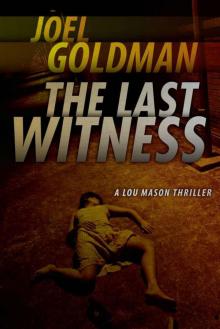 Lou Mason Mystery - 02 - The Last Witness
Lou Mason Mystery - 02 - The Last Witness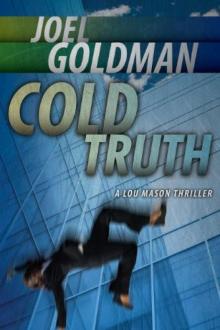 Lou Mason Mystery 03-Cold Truth
Lou Mason Mystery 03-Cold Truth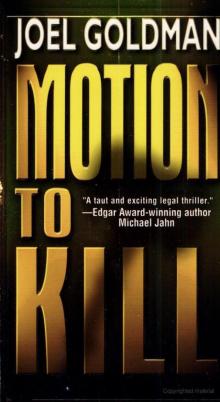 Motion to Kill
Motion to Kill Die, Lover, Die!
Die, Lover, Die!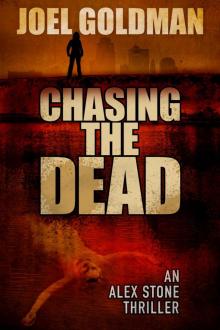 Chasing The Dead (An Alex Stone Thriller)
Chasing The Dead (An Alex Stone Thriller)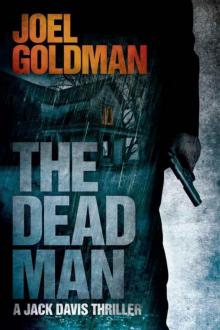 The Dead Man
The Dead Man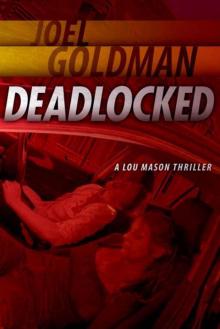 Deadlocked lm-4
Deadlocked lm-4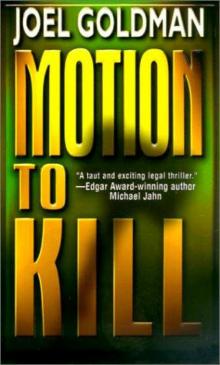 Lou Mason Mystery - 01 - Motion to Kill
Lou Mason Mystery - 01 - Motion to Kill Die, lover, die
Die, lover, die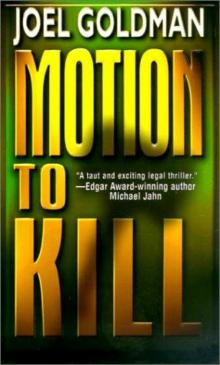 Motion to Kill lm-1
Motion to Kill lm-1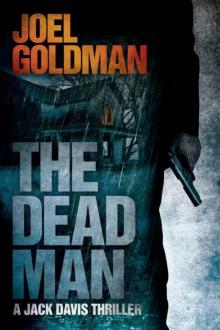 The Dead Man jd-3
The Dead Man jd-3